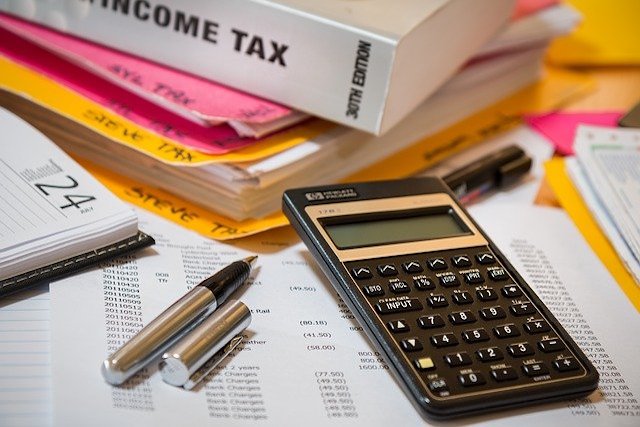If your company has outstanding tax debt problems with HMRC, such as Income Tax (PAYE) or VAT, it is essential that you seek a resolution as soon as possible. This is because they are classified as priority debts.
Failure to resolve these problems can be extremely serious and could result in winding up orders being issued or having bailiffs sent to your premises.
Thankfully, you do not have to go through it alone. By seeking specialist advice at the earliest opportunity, you can alleviate the pressure and work out a solution that fits your unique circumstances.
How to Deal with Tax Debt Problems
Getting back in control of your finances does not have to be difficult, even if it can seem like an insurmountable task at times. HMRC has made it clear that they are willing to work with people who are struggling with tax debt problems. The key is to face the issues head on and communicate with the tax office that you are willing to come to a resolution.
In addition, we have put together a few tips to help you resolve your tax debt problems as quickly and efficiently as possible.
Check the Debt is Correct
It is extremely easy to assume that a large government organisation like HMRC is always accurate with their calculations. However, this might not always be the case. Because of this, it is important to ask yourself a few important questions:
- Have you provided HMRC with up to date figures?
- Are all of your business expenses in order?
- Is all of your information correct with HMRC?
Should any of the above information be incorrect, it may have led to miscalculations on HMRC’s part and over-estimations of what you are required to pay. If your bill is not accurate, you should contact the tax office and update your details so you know exactly what your obligations are.
Put Together a Budget
Once you are fully aware of how much you owe, the next step towards dealing with your tax debt problems is to work out how much you can afford to pay. The first part of this is to calculate what you take home from your company, which can be achieved by using a self-employed income calculator.
Once you have figured out how much you are earning, the next step is to set out a personal budget. This consists of your essential outgoings such as mortgage payments, council tax and utility bills. In addition, it will include any costs that you are contractually-obliged to pay, such as mobile phone bills and credit cards.
When all of this has been completed, you will need to deduct your outgoings from your earnings to give you your disposable income. This is how much you left over once all your other obligations are taken care of. If you require further assistance with setting up a budget, we are able to help.
Get in Touch with HMRC
Now that you are aware of your financial situation, your next step should be to contact HMRC. This is to discuss setting up a regular payment plan to start the process of clearing your debts. Remember that you should never offer to pay something that you cannot afford, as this will only lead to further problems down the line. If HMRC asks for proof of your finances, you can simply send across your budget.

The tax office will usually want you to settle your arrears before your next bill is due. If you cannot afford to do this, they may let you set up an extended payment plan, such as a time to pay arrangement. Even if HMRC is initially requesting a larger amount than you can afford, try to make an up-front payment if you are able to. This will give them a clear indication that you are wanting to deal with your tax debt problems and may result in them being a bit more lenient with you moving forward.
Keep HMRC Updated
One of the worst things you can do when you owe money to HMRC is to stop communicating with them. It is therefore essential to remain in regular contact with the tax office so they are constantly aware of any changes in your circumstances that could affect how much you are able to pay. You should also ensure that they have your up to date contact information so they can get in touch with you if necessary.
What Happens if you Don’t Resolve Tax Debt Problems?
While businesses such as credit card or utility companies may be in constant contact with you to try and resolve your debts, HMRC is different. Instead, the tax office follows a formal process that will escalate extremely quickly if the issue is not dealt with.
If you refuse to resolve your tax debt problems, or end up defaulting on any arrangements you may have made with the tax office, there are a number of actions they can take against you. These include:
- Applying for a County Court Judgement (CCJ): This can significantly reduce your ability to get credit in the future
- Issue a Magistrate’s Court summons: You’ll need to attend this with details about your finances and offer to pay via instalments.
- Send bailiffs to collect the debt: HMRC does not need permission to visit your premises and seize stock or equipment. If you do not have enough to cover your debts, they may then visit your home
- Start bankruptcy proceedings: If you owe more than £5,000, HMRC can apply to make you bankrupt
- Take money from your wages: HMRC can alter your tax code to increase the amount of tax taken from your wage
- Take money from your savings: HMRC can apply to take money from your savings accounts, provided there is more than £6,000 available
How Inquesta Can Help
Over the years, Inquesta has amassed a wealth of experience in helping our clients deal with their tax debt problems. In addition, we are adept at working with HMRC to ensure that the best possible resolution is achieved for both parties.
We understand that no two situations are the same. This is why we will take the time to get to know your circumstances and use our knowledge to provide a series of potential options and recommend what we believe is the best course of action for you. Once you have made your decision, we can then negotiate with HMRC on your behalf.
Inquesta will never force you down a particular path. We always have your best interests at heart, meaning you can be confident you are working with advisors you can rely upon. We are committed to helping you lighten the load and get your finances back on track.
For more information about how Inquesta can help you, contact a member of our team today or request a free, no obligation consultation.

